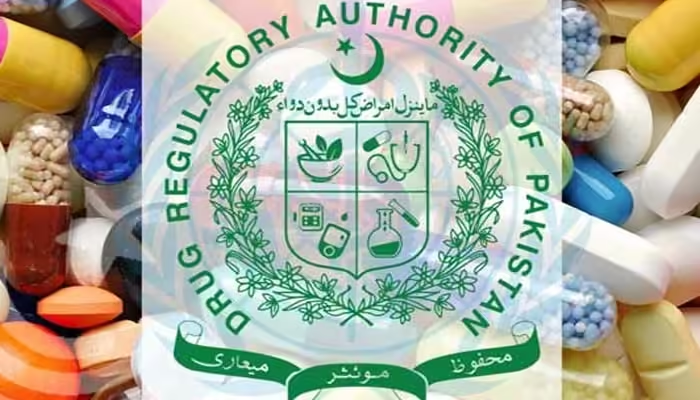The Drug Regulatory Authority of Pakistan (DRAP) has issued a stern directive aimed at curbing the rampant sale of antibiotics without proper prescriptions. This initiative comes in response to the alarming increase in antibiotic resistance among disease-causing bacteria, a trend that poses significant threats to public health.
Rising Concerns Over Antibiotic Resistance
CEO of DRAP, Asim Rauf, has expressed deep concern over the unregulated sale of antibiotic drugs, which has become a common practice across Pakistan. “There should be an immediate change in the laws for the sale of antibiotic drugs,” he stated. Rauf emphasized the critical need to address this issue to prevent further escalation of antibiotic resistance, which complicates the treatment of infections and can lead to severe health consequences.
Nationwide Directives and Legislative Changes
In a bid to tackle this pressing issue, DRAP has issued instructions to all provincial health departments, mandating an immediate halt to the sale of antibiotics without a doctor’s prescription. This directive is part of a broader strategy to strengthen regulatory oversight and ensure that antibiotics are used appropriately and only when medically necessary.
Asim Rauf highlighted the need for legislative reforms to support these efforts. “Immediate change in the laws for the sale of antibiotic drugs is essential,” he noted, indicating that current regulations are insufficient to control the misuse of these powerful medications. DRAP’s initiative aims to bring Pakistan in line with global standards, where prescription antibiotics are strictly regulated to prevent misuse and resistance.
Addressing Unethical Practices and Unnecessary Prescriptions
The unregulated sale of antibiotics is not the only issue at hand. DRAP also plans to take action against doctors who prescribe antibiotics unnecessarily. “We will propose action against doctors who prescribe unnecessary antibiotics,” Asim Rauf asserted. This move is intended to promote responsible prescribing practices among healthcare professionals, ensuring that antibiotics are only used when absolutely necessary.
Furthermore, DRAP aims to clamp down on pharmaceutical companies engaged in unethical marketing practices. These companies often promote antibiotics aggressively, leading to overuse and misuse by both healthcare providers and patients. “Action will also be taken against the pharma companies doing unethical marketing for the sale of drugs,” Rauf added. By targeting these unethical practices, DRAP hopes to reduce the prevalence of unnecessary antibiotic use and mitigate the risk of resistance.
Economic Implications and Public Health Impact
The sale of antibiotics in Pakistan is a significant economic activity, with drugs worth 135 billion rupees being sold annually. However, the economic benefits are overshadowed by the public health risks associated with antibiotic resistance. As disease-causing bacteria become more resistant to existing treatments, infections become harder to treat, leading to longer hospital stays, higher medical costs, and increased mortality.
Global Context and Best Practices
Antibiotic resistance is a global issue, and many countries have implemented stringent regulations to control the use of these drugs. In developed nations, antibiotics are strictly prescription-based, and their sale is closely monitored. This ensures that antibiotics are used judiciously and only when necessary, thereby reducing the risk of resistance.
Pakistan’s move to regulate the sale of antibiotics is a step towards aligning with these international best practices. By enforcing prescription-only sales and cracking down on unethical marketing, DRAP aims to create a more controlled and responsible use environment for antibiotics.
Public Awareness and Education
In addition to regulatory measures, public awareness and education are crucial components of DRAP’s strategy. Educating the public about the dangers of antibiotic misuse and the importance of following medical advice can help reduce the demand for over-the-counter antibiotics. DRAP plans to launch awareness campaigns to inform the public about the risks of self-medication and the benefits of consulting healthcare professionals before using antibiotics.
The Drug Regulatory Authority of Pakistan’s decisive action to regulate the sale of antibiotics is a vital step in combating the growing threat of antibiotic resistance. By enforcing prescription-only sales, proposing actions against unnecessary prescribing, and targeting unethical marketing practices, DRAP aims to ensure that antibiotics are used responsibly and effectively.
These measures, coupled with public education and legislative reforms, are essential to safeguarding public health and preventing the further spread of antibiotic-resistant bacteria. As Pakistan moves towards stricter regulation of antibiotics, it sets a precedent for other nations facing similar challenges, highlighting the importance of a coordinated and comprehensive approach to managing antibiotic use.



